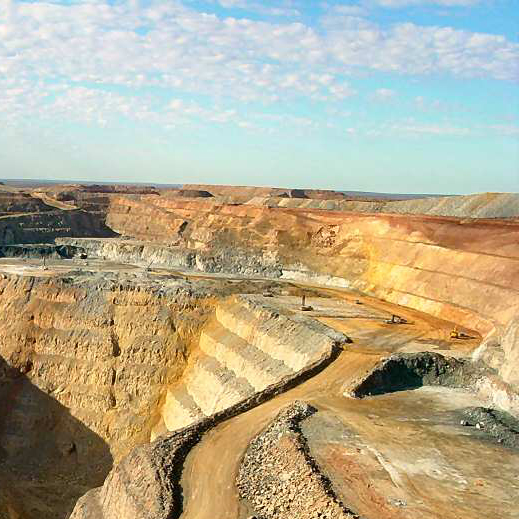Environmental and Resource Geochemistry (ERG)
The Environmental and Resource Geochemistry specialization focuses on the fundamental and applied aspects of (hydro-) geochemical processes that generate resources and govern the environmental impacts of resource extraction and use, as well as opportunities for more sustainable resource utilization. Students have the opportunity to explore fundamental mechanisms of mineral-fluid interaction that regulate mobility and deposition of elements as well as the applications of these processes to current issues in the environmental and resource sectors.
Information: Prof. Anna Harrison (Bern) or Prof. Esther Schwarzenbach (Fribourg)
» Groundwater quality
» Remediation of contaminated sites
» Deep geological disposal of radioactive wastes
» CO2 sequestration
» Geothermal energy
» Development of secondary resources

This specialization aims to equip graduates with a combination of different skills required to tackle pressing issues at the interface of geoscience, society, and the environment. This includes: an understanding of the interaction between chemical, physical, and biological factors that have shaped and still shape the face of our planet; ability to critically evaluate impacts of human activities; expertise in resource generation and sustainable resource use; data handling, presentation, and interpretation skills; hands-on practice in state-of-the-art field and laboratory methods; integrating scientific information into sound geological and numerical models; ability to formulate and execute a research project; communication and dissemination of scientific results to a variety of audiences (e.g., academics, general public); skills in efficient collaboration with colleagues.
(30 ECTS in Module B)
Download list with ERG master courses sorted by frequency (pdf)
MSc projects may include field work, a large variety laboratory analyses of both fluids and solids, mineral surface- to regional-scale modelling, and experiments in the laboratory and in underground field laboratories. Thesis research may also include applied topics with industry-focused research. Please see the list of currently available topics. Students may also inquire with instructors directly about any additional thesis topics that may be available.
(this list is updated in January each year)
MSc students have access to a wide range of modern analytical facilities at the host institute, including petrographic microscopy, cathode-luminescence, scanning-electron microscopy, X-ray diffraction (XRD), including non-ambient XRD, X-ray fluorescence, electron microprobe, X-ray Computed tomography, Laser-Raman and FTIR spectroscopy, Laser-ablation-ICP-MS, granulometry, gas adsorption BET surface area analysis, fluid inclusion microthermometry, rock porosity and permeability apparatus, wet-chemical laboratories with mass and optical emission spectrometers, ion chromatography, and stable and radiogenic isotope sample preparation and measurement facilities. A variety of experimental apparatus for Earth’s surface to hydrothermal temperature conditions are available (batch, mixed-flow, columns, autoclaves, etc). Computational facilities include computer clusters for hydro-geochemical modelling and GIS applications. Additional facilities as needed are available at the BeFri partner universities and at collaborating research institutes.
Prospective students for the Specialization in “Environmental and Resource Geochemistry” should contact the course coordinator Prof. Anna Harrison (Bern) or Prof. Esther Schwarzenbach (Fribourg).
Processes of rock–water interaction relevant to groundwater quality, remediation of contaminated sites, deep geological disposal of radioactive and toxic wastes, genesis and exploration of mineral resources, and development of secondary resources.
Information: Prof. Anna Harrison (Bern) or Prof. Esther Schwarzenbach (Fribourg)